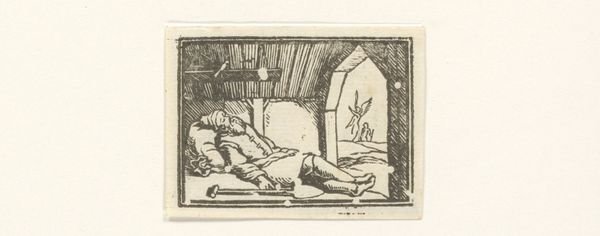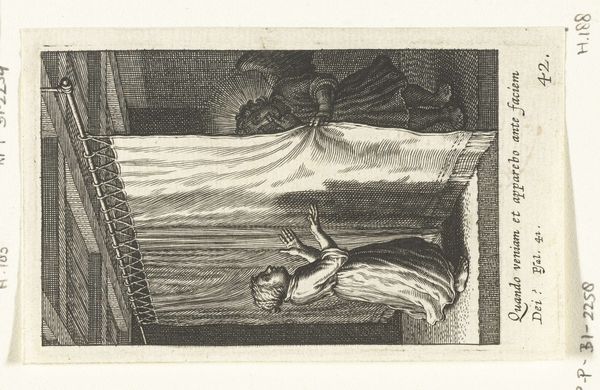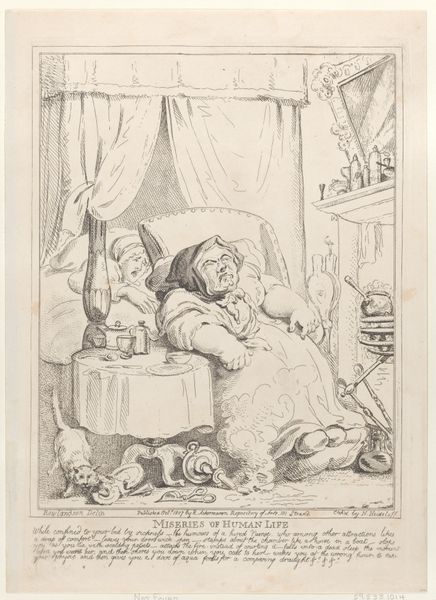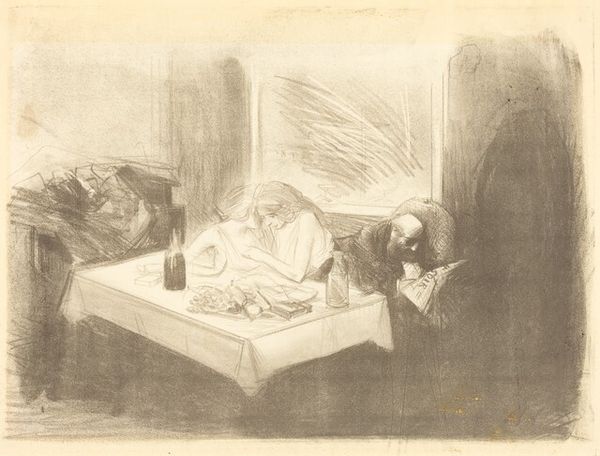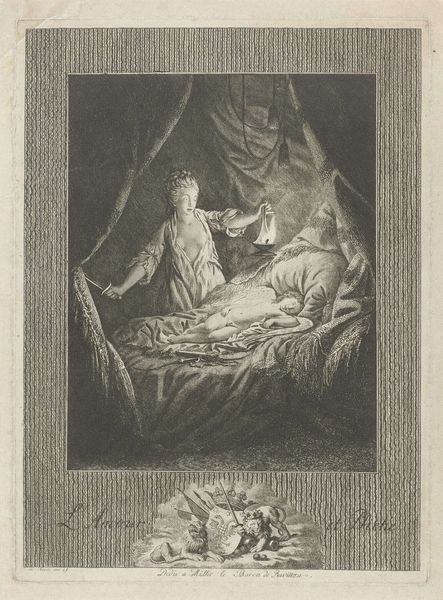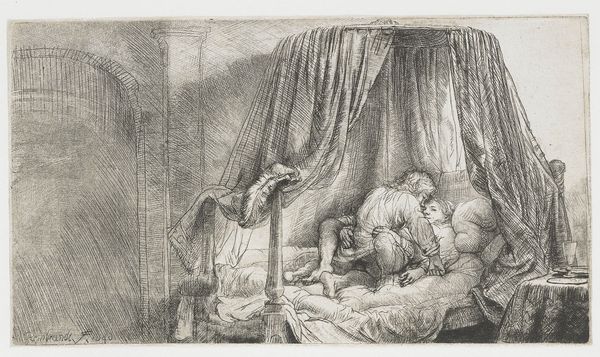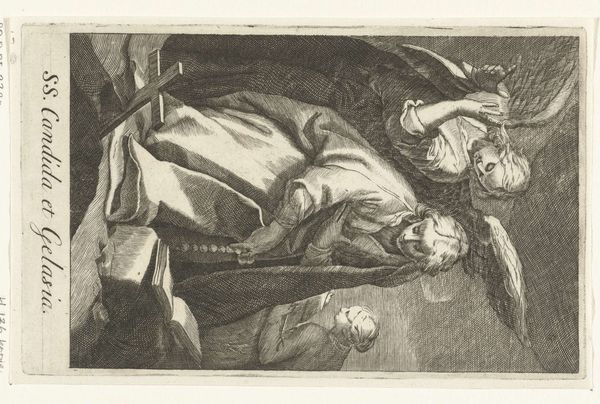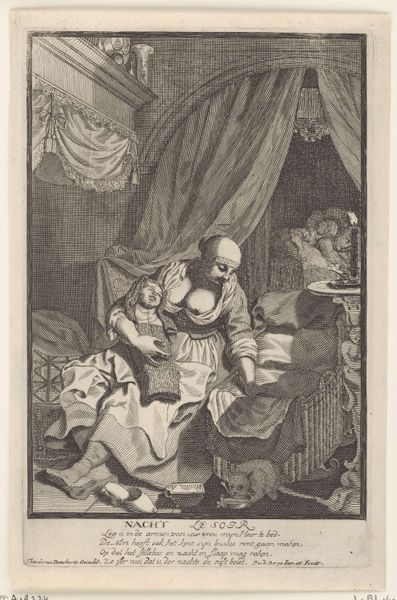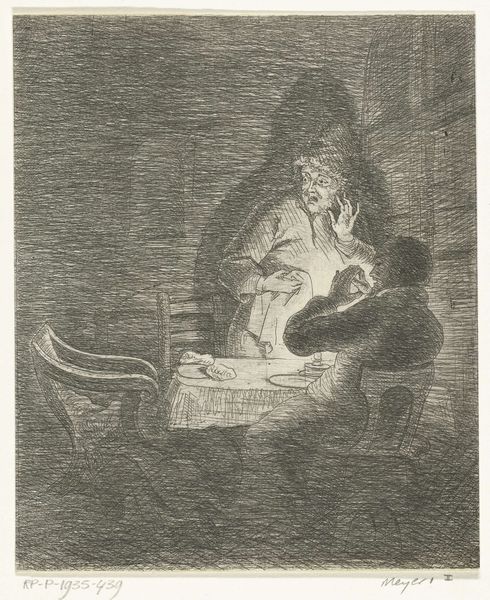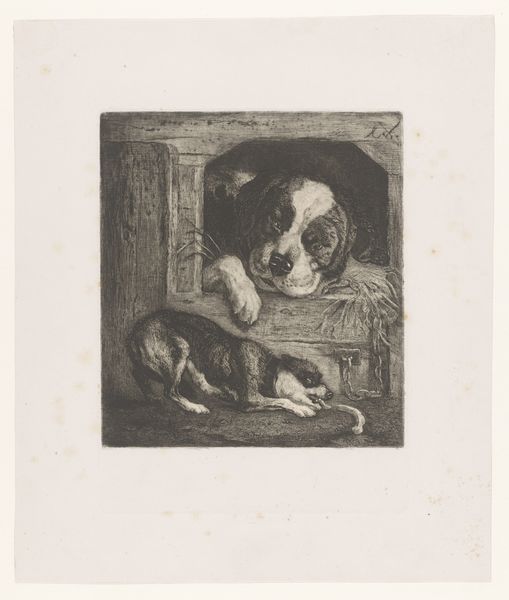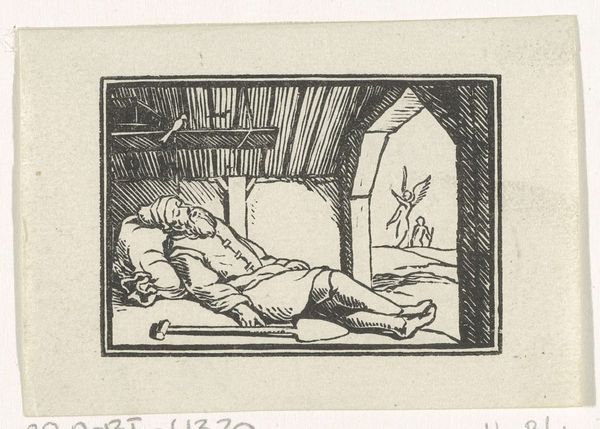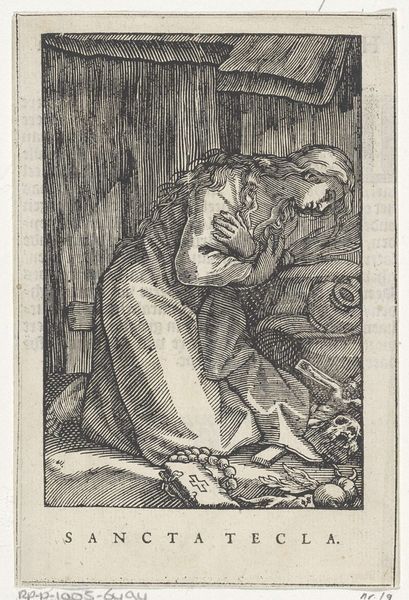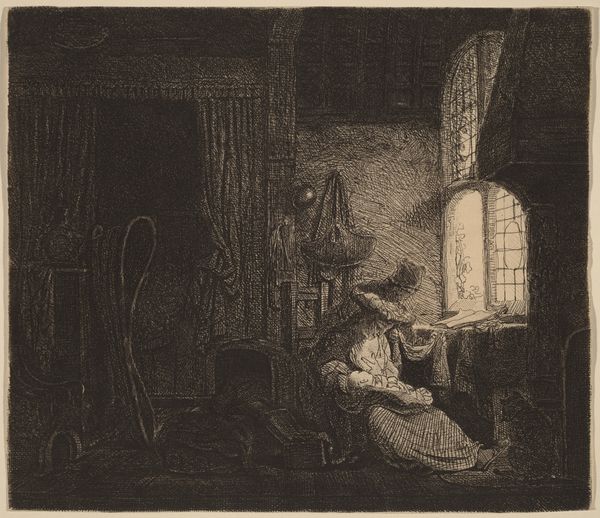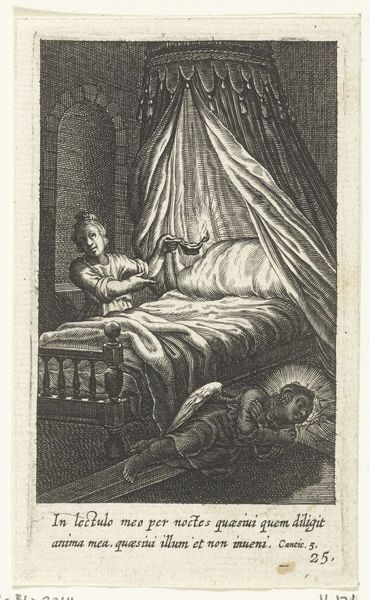
print, engraving
#
portrait
#
toned paper
# print
#
old engraving style
#
genre-painting
#
history-painting
#
engraving
#
realism
Dimensions: height 145 mm, width 195 mm
Copyright: Rijks Museum: Open Domain
Editor: So this is "Prent van Willem van Oranje op zijn praalbed, 1584," or "Print of William of Orange on his deathbed, 1584," made sometime between 1850 and 1899 by an anonymous artist. It's an engraving. It strikes me as really staged, even melodramatic. What jumps out at you? Curator: It feels like theater, doesn't it? All that drapery! But look closer. It’s a portrait of power, really, even in death. Think of the era – images of leaders were carefully crafted. The dog at the foot of the bed is incredibly symbolic of loyalty and watchfulness. Notice how the engraver captured every minute detail using a delicate technique, especially on the dog’s forlorn little face. Do you get a sense of the Dutch Golden Age in all this, maybe a whisper of their prosperity? Editor: I see what you mean about the dog. And, now that you mention it, there's the sword too...a very personal symbol of power laid there. Do you think that this might've been used to manipulate public perception, turn him into a martyr figure, even? Curator: Absolutely. Image management was crucial, then and now. This print aimed for pathos. Consider the lonely candle flickering in the background, hinting at his life being extinguished. Someone really knew their symbols, their composition. Art has a role in this historical event, don't you think? To teach as well as reflect? Editor: It definitely makes me think differently about prints of historical events. It's not just recording, it's…framing. Curator: Precisely. We all interpret the world, and engravings are someone else's reading of events. The way the past gets remembered. Editor: This image gives a new look to historical events, by opening one small, intimate view of a larger world, and one man’s death.
Comments
No comments
Be the first to comment and join the conversation on the ultimate creative platform.
